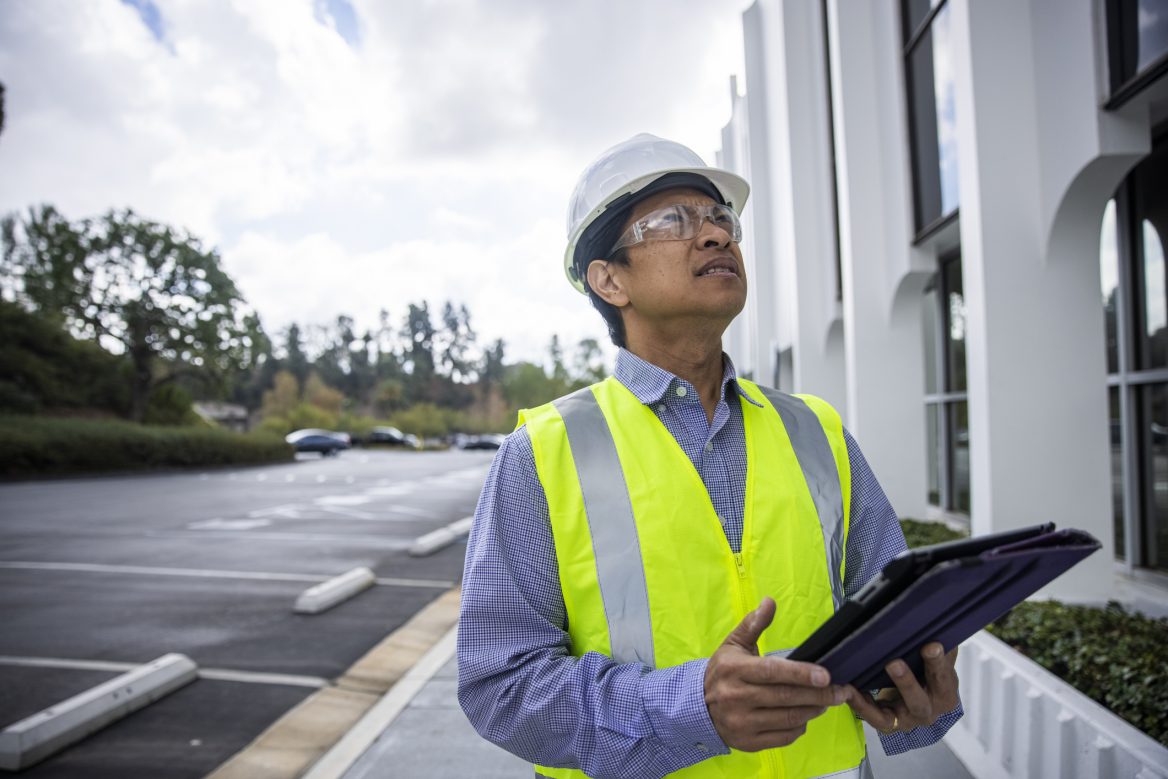Preventative maintenance and general property repairs are significant but necessary expenses for commercial landlords and real estate investors. Skipping over these expenses can be even more costly down the road. Download Printable Article (PDF).

Here are 10 of the most important property repairs you can’t afford to ignore.
1. Piping
The piping throughout your commercial property can clog, freeze, swell, crack or burst if left unsupervised. A section of pipes can also disconnect as the tap washer wears down over time. Failure to repair your piping can lead to high replacement costs, in some cases exceeding $16,000 for larger residential and commercial properties.
Your tenants play a crucial role in pipe maintenance. Ask them to watch out for wet spots, mold and other signs of water damage around their water fixtures. During the winter months, make sure their rooms stay above 55° Fahrenheit so the pipes don’t freeze.
2. Toilets
Toilets can be highly problematic for landlords. Tenants often flush all kinds of objects, including paper towels, baby wipes and toys. These foreign objects can damage your plumbing system and septic tank, so you need to set strict ground rules for which items your tenants can and can’t flush. Your toilet tank’s metal and plastic components can also bend or break. These minor property repairs don’t cost much
on their own, but if you ignore them, you could spend up to $230 plus installation costs for a complete toilet replacement.
3. Water Heaters
If your water heaters aren’t working, a tenant will be sure to let you know. Nobody likes taking cold showers. That means you should be able to fix your water heater’s minor issues before they worsen. Broken heating elements and pilot lights are the most common issues, which are cheap and easy to repair. However, if you ignore these problems and your water heater suffers permanent damage, you might have to
pay $1,600 for a replacement heater. The costs might be higher depending on the size of your commercial property.
4. Electrical Wiring
Your property’s electrical wiring becomes a serious safety hazard if you neglect to maintain it. Wiring is the third-leading cause of fires on residential and commercial properties overall. Ignoring your wiring can have severe consequences.
Regarding financial consequences, rewiring your property would cost between $2 and $4 per square foot. It’s better to spend on preventative measures, such as ground fault current interrupters and arc-fault circuit interrupters. These devices prevent a fire from starting if your wires get damaged. You should also encourage tenants to turn off electronics when not in use.
5. HVAC System
Speaking of temperature fluctuations, a damaged HVAC system will make your building’s climate impossible to control. You need to inspect and clean your HVAC system at least once a year. If you neglect to perform routine maintenance, your rooms will get noticeably hotter in the summer and freezing in the winter. The average life span of an HVAC system is 15 years. It should have no problem lasting over a decade as long as you keep it clean and replace the filters when they wear out. You shouldn’t have to spend over $10,000 on a replacement every few years, so try to make your HVAC system last as long as possible.
6. Garage Doors
Your property’s garage doors play crucial roles in climate control. When they do a good job of keeping external temperatures and moisture outside, you spend less money and energy trying to heat and cool the building. Of course, the opposite is also true. If your garage doors suffer damage, you’ll spend more money on heating and cooling utilities over time.
Replacing individual panels and other small garage door parts is easy and cheap, but an entire garage door replacement will hurt your wallet. Depending on the size and model, it can cost up to $1,650. Your tenants will also complain about temperature fluctuations in their rooms. Make sure you stay proactive with your garage door maintenance to avoid these problems.
7. Pest Control
A pest infestation can drive tenants away and cause your commercial property value to plummet. A building-wide extermination can also cost hundreds of dollars for each visit, which usually takes several days. You’re much better off spending your money on preventative pest control, such as properly storing food and having a strict waste management policy.
The most common pest infestations are mice, rats, ants, roaches and termites. Your tenants should be familiar with each species so they know what type of infestation to report. Keep a close watch out for nests, droppings and other signs of infestation.
8. Drywall
Drywall is a constant problem for most commercial property owners. Tenants seem to break holes in drywall all the time. You can easily patch up the holes in most cases, but a full wall replacement is sometimes necessary if the hole is too big. Additionally, damaged drywall can be a sign of foundational issues that put the entire building in jeopardy.
Since you can’t avoid most of the damage that happens to drywall, your best course of action is to get reliable commercial property insurance. Make sure your plan covers damage caused by tenants. You also need to stress the importance of the situation to your tenants — if they hide drywall damage from you, it might have severe consequences later.
9. Garbage Disposal
Garbage disposal damage is common on rental properties. Tenants put bones, egg shells and all kinds of other hard objects down the drain that dull the blades and clog the piping. It might be a small device compared to other items on this list, but a garbage disposal replacement can cost up to $950 plus installation fees. You must set strict rules for items your tenants can throw in the garbage disposal. This simple measure will help you prevent many small property repairs. The costs of replacing the blades or impeller plate can be just as expensive as buying a whole new unit, so you need to be extra cautious.
10. Smoke Detectors
Smoke detectors are easy to repair or replace, so you have no excuse for ignoring them. They play crucial roles in keeping your tenants safe. You will be liable for the injuries if you leave a broken smoke detector unchecked and a fire breaks out. Do frequent inspections, replace dead batteries immediately and get new detectors once every 10 years at minimum.
Keep Your Property in Good Condition
Keeping your property in good condition might be expensive and time consuming. Still, the financial consequences will be even more significant if you fail to perform preventative maintenance and minor property repairs. These 10 property repairs are just the tip of the iceberg regarding commercial property management.
Rose Morrison is a residential and commercial real estate writer and the managing editor of Renovated. To see more of her work visit: https://renovated.com/


